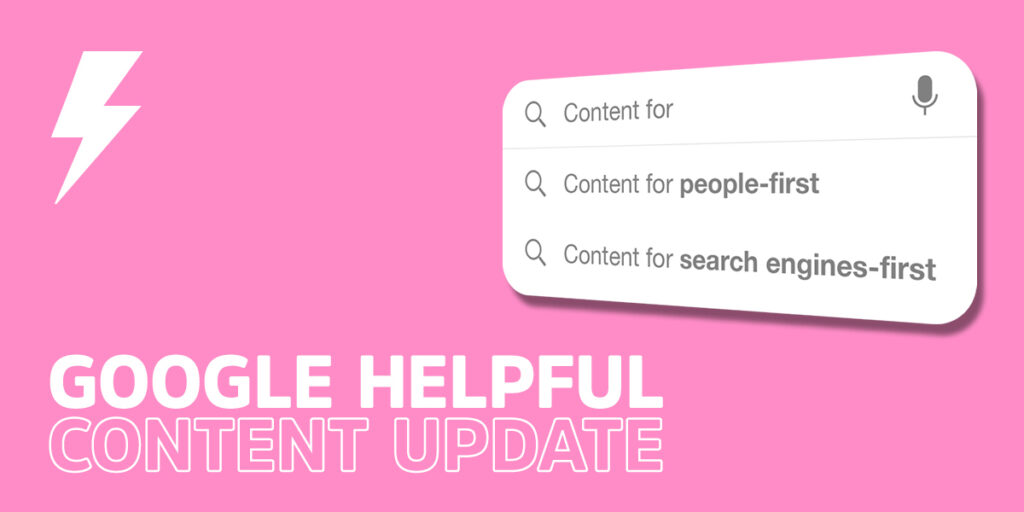Google’s Helpful Content Update: What Does It Mean For Your Business
29th September 2022
Google’s Helpful Content Update announced changes to the algorithm that dictates search result rankings – in other words, the programme that chooses which web pages appear higher in search results. This is massively important for content creators and brands that rely on appearing high in Google search results to drive traffic, and potential revenue.

Why update?
Like many updates before it, Google’s objective is to provide high-quality information that focuses on user experience. Again, the common trend is to move away from the SEO tricks and tactics that mean the content is sometimes created for the search engine, rather than an actual person.
It’s also important for Google to keep competitors at bay, and the latest update contains even more mind-blowing stuff, building on Google’s Helpful Content Update ability to sniff out ‘unhelpful’ or ‘unsatisfying’ content, like AI-generated copy or keyword-packed drivel that doesn’t add value to the reader.
What does it mean for content creators and webmasters?
This trend toward quality content shouldn’t be a new revelation, but breaking old habits is still something which should be high on the agenda. Instead of relying on the typical 800 – 1,000 word blog, ten-part listicle or infographic with a few hundred words and keyword-laden headline, the big rethink needs to be towards ‘user first content’.
Google’s aim, in the long run, is to get away from the typical search engine model and get back to a time where the best content creators get ranked highest, like premium news outlets or best-selling authors used to back in the day. So great journalism, original content and anything that informs, inspires or educates the reader should appear first if the algorithm is smart enough.
The good thing is that the SEO shackles (that’s too long, there aren’t enough keywords, you haven’t got enough images, where are your links) are gradually loosening, and that content can gradually move towards fulfilling the reader’s needs, rather than the search engine’s parameters.
The bad thing is that those with a long-term SEO strategy based around keywords, length, consistent formatting or authoritative backlinking will slowly need to rethink their approach.
What do I need to do now?
Saying all of this, the helpful update doesn’t mean you need to stop doing SEO or make drastic changes. Google will still need the usual tagging, page organisation, links and rich page content to make its decisions. Instead, focus on what can be done to new content to match Google’s recommendations.
Ask yourself the following questions (these are Google’s own recommendations) and add the changes to your strategy.
- Is the content primarily to attract people from search engines, rather than made for humans?
- Are you producing lots of content on different topics in hopes that some of it might perform well in search results?
- Are you using extensive automation to produce content on many topics?
- Are you mainly summarising what others have to say without adding much value?
- Are you writing about things simply because they seem trending and not because you’d write about them otherwise for your existing audience?
- Does your content leave readers feeling like they need to search again to get better information from other sources?
- Are you writing to a particular word count because you’ve heard or read that Google has a preferred word count? (No, we don’t).
- Did you decide to enter some niche topic area without any real expertise, but instead mainly because you thought you’d get search traffic?
- Does your content promise to answer a question that actually has no answer, such as suggesting there’s a release date for a product, movie, or TV show when one isn’t confirmed?
You also need to re-think how you approach your keyword research and article planning process to ensure content is people-focused. That means more A/B testing, more creative ideas, and throwing things like consistent word counts, a fixed format and keyword-first copy out of the window. Oh, and a content refresh won’t hurt.
We’d suggest making Google’s own recommendation your first stop, but we can also help you with content strategy, copy and everything else affected by Helpful.

